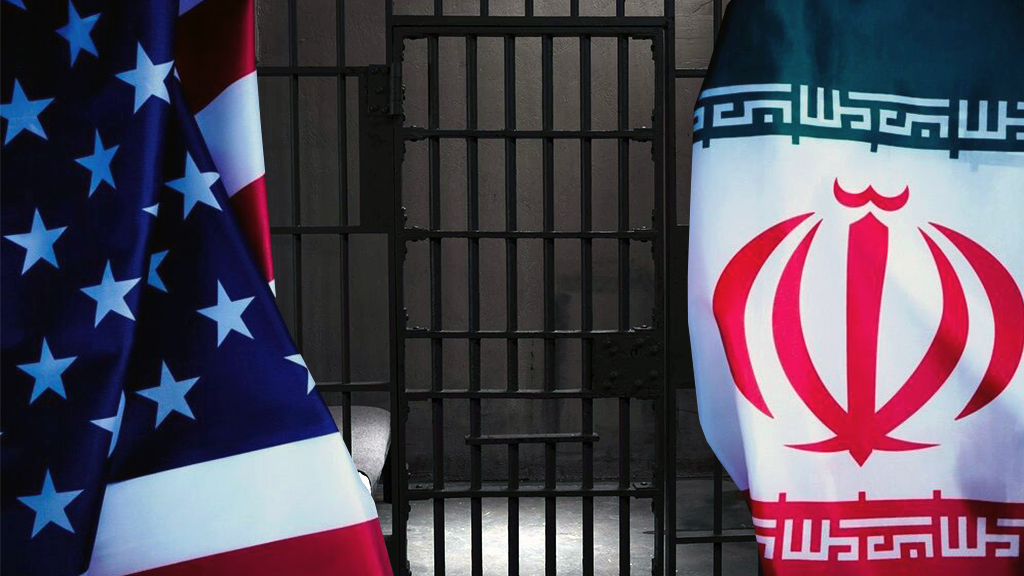
The cost of America's $6 billion prisoner exchange with Iran
The Biden administration is careful not to create expectations regarding the prisoner exchange agreement with Iran, aiming to emphasize that such "humanitarian" efforts are separate from the nuclear issue. Immediately after the successful exchange, the U.S. imposed new sanctions on Iran, indicating that the situation is not merely a simple prisoner swap. The fact that the exchange also involves the release of $6 billion in Iranian oil revenue frozen in South Korea for humanitarian purchases shows that it is more than just a prisoner exchange. The U.S. government, perhaps to avoid any political cost domestically, is both imposing new sanctions and claiming that it has no connection to the stalled nuclear negotiation process.
Share
The Biden administration is careful not to create expectations regarding the prisoner exchange agreement with Iran, aiming to emphasize that such "humanitarian" efforts are separate from the nuclear issue. Immediately after the successful exchange, the U.S. imposed new sanctions on Iran, indicating that the situation is not merely a simple prisoner swap. The fact that the exchange also involves the release of $6 billion in Iranian oil revenue frozen in South Korea for humanitarian purchases shows that it is more than just a prisoner exchange. The U.S. government, perhaps to avoid any political cost domestically, is both imposing new sanctions and claiming that it has no connection to the stalled nuclear negotiation process.
The 2015 nuclear deal (JCPOA), which former President Obama could only finalize in his second term, did not last, as it did not pass Congress and was rendered impermanent when Trump came to power. Trump not only withdrew from the deal as Israeli Prime Minister Netanyahu wanted but also pressured Iran with a full-court press, causing it to lose ground in the region. While Biden declared during his election campaign that he would return to the agreement, negotiations failed as he sought a broader deal. Currently, nuclear negotiations are suspended, and it is estimated that Iran has the capacity to produce a nuclear bomb within a few months if it so chooses.
The main reason for the success of the prisoner exchange agreement is Iran's economic difficulties. The prospect of being able to access the frozen $6 billion in oil revenue, frozen under American sanctions, makes the exchange attractive to Iran. After transferring the money from South Korea to Switzerland and then to Qatar, Iran will have to apply separately for each expenditure to show that it will be used for food, medicine, and humanitarian supplies. Iranian President Raisi's statement at the UN that this money belongs to them and that they will use it as they wish raises questions about how strictly spending restrictions can be enforced.
While President Raisi is sending a message to his domestic audience, this mechanism has already become a subject of harsh criticism by Republicans. Republican Congressman McCaul, Chairman of the House Foreign Affairs Committee, criticized the agreement, saying that it encouraged future hostage-taking of American citizens. Republican Senator Tom Cotton argued that Biden's appeasement policy made America less secure. Former President Trump described the agreement as "foolish," while Republican Congressman Pat Fallon claimed that releasing the funds supported a state that sponsors terrorism.
As we approach the election year, this exchange has clearly provided material against Biden. Any perceived leniency or concessions toward Iran are not popular in American politics. Republican opposition argues that despite the released funds belonging to Iran, this exchange amounts to paying a ransom to a state that supports terrorism and will encourage similar hostage-taking incidents in the future.
The main reason Biden did not return to the nuclear agreement immediately upon taking office was his awareness of the strong opposition he would face domestically.
With the election season looming even after this exchange, progress in nuclear negotiations is becoming increasingly difficult. Republicans will likely argue that the administration that released $6 billion for the exchange will release much larger funds for a nuclear agreement. It can be said that Biden is running out of time for an agreement with Iran due to the energy he is expending on Ukraine and China and his desire to go into idle mode until the November elections. Iran, on the other hand, is unlikely to want to negotiate with an administration whose continuity is uncertain. Therefore, the possibility of a new nuclear agreement (unless a big surprise occurs) is likely to be postponed until after November 2024.
While some experts argue that the prisoner exchange will pave the way for a nuclear agreement, Biden's statement that the exchange "has not changed our relationship with Iran in any way" seems to be aimed at lowering expectations. In U.S.-Iran relations, where mutual distrust is at its peak, there are regional issues (Iraq, Lebanon, Yemen), support for terrorism, and human rights concerns outside the nuclear dossier. Iran, despite suffering greatly from sanctions, has become accustomed to living with them, making carrot-based strategies, as seen in the exchange agreement, more effective. On the American side, any action that could be perceived as rewarding Iran comes with a high political cost.
The removal of Rob Malley, who was in charge of nuclear negotiations, in a controversial and unexplained manner suggests that negotiations with Iran are a highly sensitive process. While the exchange negotiations were led by familiar figure Bret McGurk, who is responsible for the Middle East and North Africa at the White House, it may give the impression that the process is proceeding independently of the nuclear issue, assuming that there is no connection is not realistic. Biden's desire to score political points by bringing American citizens back home is understandable, but the $6 billion cost will undoubtedly be a constant reminder during the election season.
[Yeni Şafak, September 25, 2023]
Tags »
Related Articles






